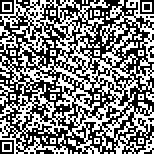| 摘要: |
| [摘要] 目的 通过深度卷积神经网络对分裂中期的染色体图像进行学习,测试其在染色体分类的准确率。方法 该研究一共纳入1 275例不同个体分裂中期的染色体图片,其中735例作为训练集用于深度卷积神经网络,245例作为测试集用作内部验证,245例外院数据用作外部验证;另取50例染色体图片资料,分别记录人和计算机完成染色体分类的时间及准确率。结果 24分类的结果提示,分类网络在内部验证的准确率为91.22%,外部验证的准确率为91.48%;ResNet的分类效率是人工操作的1 000倍以上,其准确率明显优于非遗传专科医师。结论 深度卷积神经网络在染色体分类的应用价值极具有发展潜力,将有助于构建染色体核型分析自动化平台。 |
| 关键词: 染色体分类 卷积神经网络 染色体核型分析 |
| DOI:10.3969/j.issn.1674-3806.2020.02.04 |
| 分类号:TP 183 |
| 基金项目:武汉市卫生健康委员会医学科研项目(编号:WX19Q29) |
|
| Application research on classification of metaphase chromosomes based on deep convolutional neural networks |
|
ZHANG Cheng-cheng, SONG Jie-ping, XU Shu-qin, et al.
|
|
Department of Clinical Laboratory, Maternal and Child Health Hospital of Hubei Province, Wuhan 430070, China
|
| Abstract: |
| [Abstract] Objective Deep convolutional neural networks was used to learn the chromosome images in the metaphase of mitosis and test its accuracy in chromosome classification. Methods A total of 1 275 chromosome images of different individual metaphase divisions were included in this study, of which 735 cases were used as training sets for deep convolutional neural network, and 245 cases were used as test sets for internal validation, and 245 cases of another hospital′s data were used as external validation. In addition, 50 chromosome images were taken to record the time and accuracy of completing chromosome classification by human and computer. Results The results of 24 categories indicated that the accuracy rate of the internal validation was 91.22% and that the accuracy rate of the external validation was 91.48%. The efficiency of classification by ResNet was more than 1 000 times higher than that by manual operation, and its accuracy was significantly better than that of non-genetic specialists. Conclusion Deep convolutional neural networks has great potential in the application of chromosome classification and will be helpful to construct a platform for automatic chromosome karyotype analysis. |
| Key words: Chromosome classification Convolutional neural networks Karyotype analysis |

